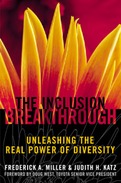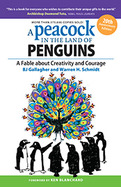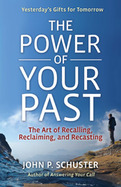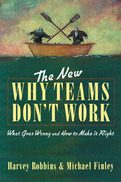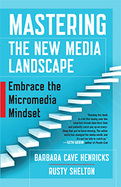2019
Case studies, practical exercises, and inspiring stories from Kuhl's work with clients at companies such as Eli Lilly and Company, Goldman Sachs, U.S. Soccer, BlackRock, South Carolina Asphalt Pavement Association and top business schools make this a truly comprehensive guide. It's an indispensable resource for women seeking to build the confidence and conviction to secure the seat at the table they've earned and create a welcoming workplace for everyone.
Constant, continuing, and cataclysmic change is causing a major crisis within business organizations today. Faced with constantly advancing technology, unpredictable market shifts, intense global competition, and an increasingly independent "free agent" workforce, the only way for an organization to adapt and succeed is to build a "culture of inclusion" that nurtures and draws on the talents of a diverse workforce.
Easy to say but hard to do; most organizations are mired in industrial revolution, static-world business models administered by monocultural, bordering-on-oppressive, "command and control" hierarchies. Organizations at risk include Fortune 500 giants, entrepreneurial start-ups, manufacturing and retail operations, government agencies, not-for-profits, educational institutions, and others.
Most organizational change efforts-whether labeled as diversity efforts, re-engineering, right-sizing, or total-quality-management-are a waste of time, money, and human effort. Most produce more cynicism than results, and they can poison the waters for future change efforts. The Inclusion Breakthrough cuts a path through this potential minefield, offering a proven methodology for strategic organizational change, including models for diagnosing, planning, and implementing inclusion-focused, culture-change strategies tailored to each organization's individual needs. It also describes the key competencies for leading and sustaining a culture of inclusion.
Offering real-world results of "before and after" surveys, including anecdotal and statistical reports of organizational change achieved using the methodologies described, The Inclusion Breakthrough presents an overview of current workplace conditions, attitudes, and policies based on interviews, surveys, and focus groups encompassing thousands of people in major organizations. The Inclusion Breakthrough demonstrates why the bottom line must be the central focus of any change strategy-and more importantly, how to carry that strategy out successfully.
Through the story of Perry the Peacock and his fine feathered friends, authors BJ Gallagher and Warren H. Schmidt bring to life the challenges of birds of different feathers who struggle to be successful in the conformity-minded Land of Penguins. Their travails illuminate the challenges of creating a pluralistic corporate culture in which the talent, energy, and commitment of all employees are fully engaged.
People who have new ideas that differ from business as usual are often ignored or criticized for the very thing that makes them valuable: their originality and creativity. This unique book helps organizations break out of "penguin thinking” in order to tap into and leverage the creativity of diversity. Learn how to cultivate an organizational culture in which new ideas can flourish and innovation can take flight.
-
Based on the authors' bestselling book Why Teams Don't Work-winner of the Financial Times/Booz Allen & Hamilton Global Business Book Award as the Best Management Book of the Year in the Americas
-
Teaches people how to be good team members and teaches team members how to be team leaders
-
Includes seven completely new chapters as well as new and updated examples and information throughout
The move to teams has largely failed, say Harvey Robbins and Michael Finley, mainly because teams themselves are failing to think through the human implications of teaming. The New Why Teams Don't Work is a handbook for team members and team leaders to maintain the highest possible level of team intelligence-the skills, attitudes, and emotional flexibility to get the most out of a team's inherent differences.
Describing what teams are really like, not how they ought to be, the book teaches people how to work together to make decisions, stay in budget, and achieve team goals. Robbins and Finley show, for instance, how to get hidden agendas on the table, clarify individual roles, learn what team members expect and want from each other, choose the right decision-making process, and much more.
Updated throughout, the book includes completely new material on team intelligence, team technology, collaboration vs. teamwork, team balance, teams at the top, the team of one, plus all new and updated examples.
The giant brands that once dominated the media landscape—Oprah, the New York Times, NPR, CNN—have seen their monopoly on public attention smashed by the Internet and now find themselves competing with individuals and brands in a sea of micromedia: websites, social media, blogs, podcasts, and more. Ace publicists and marketers Barbara Cave Henricks and Rusty Shelton show that to navigate through this modern terrain, you need to think more like a media executive than a marketer. The key lies in mastering three crucial categories of media—earned, owned, and rented—and knowing how to integrate each for maximum success. By using this proven strategy, you can create a positive feedback loop that will generate massive momentum and grow a large, loyal audience for your message.



